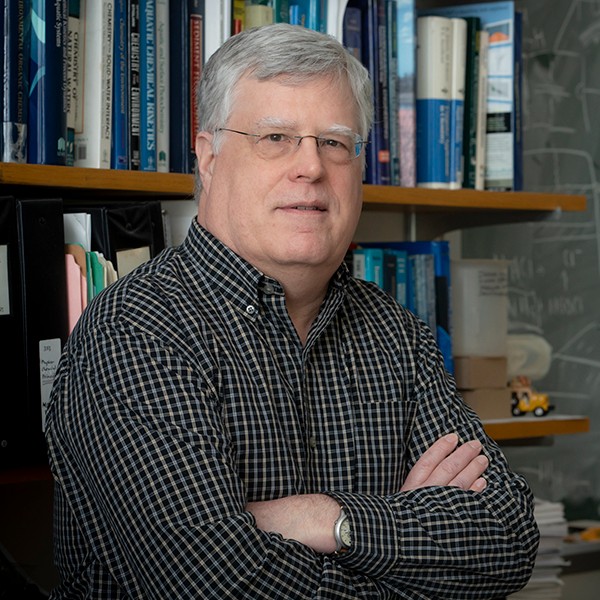Chad Jafvert elected AEESP Fellow
Chad Jafvert, Lyles Family Professor of Civil Engineering and Professor of Environmental and Ecological Engineering, has been elected as a Fellow of the Association of Environmental Engineering & Science Professors (AEESP). The honor recognizes members who have exhibited exceptional long-term excellence in environmental research, teaching, or service to the environmental engineering and science community.
Professor Jafvert has conducted research and taught undergraduate and graduate students at Purdue for over 30 years, where he is also a member of the University’s Teaching Academy, listed in the University’s Book of Great Teachers, and was honored with the Environmental and Ecological Engineering program’s Instructional Excellence Award on two occasions. He is a Board-Certified Environmental Engineering Member (BCEEM) of AAEES, certified by eminence. In 2017, he won the AEESP Outstanding Publication Award along with his co-author, Richard Valentine. He teaches water chemistry courses, water quality modeling courses; and over the past decade, a service learning course on drinking water treatment in under-developed areas around the global, with an outcome being the installation of point-of-use slow sand filters in Tanzania, Kenya, Western China, India, and in many rural elementary schools in Colombia. He is also an Honorary Visiting Professor at Southeast University in Nanjing, China where he has taught summer courses since 2011. His research interests are broad and include: chemical and physico-chemical fate processes of anthropogenic substances in natural and engineered environments, remediation strategies for contaminated sediments; aquatic photochemistry of pollutants including carbon-based nanomaterials, real-time continuous water quality monitoring, and ion exchange processes on surfactant micelles and nanomaterials. He has supervised 19 completed Ph.D. and 10 thesis M.S. students, with 11 of his former Ph.D. students holding faculty positions at universities in the U.S., Taiwan, South Korea, Panama, Guam, Indonesia, and China.

